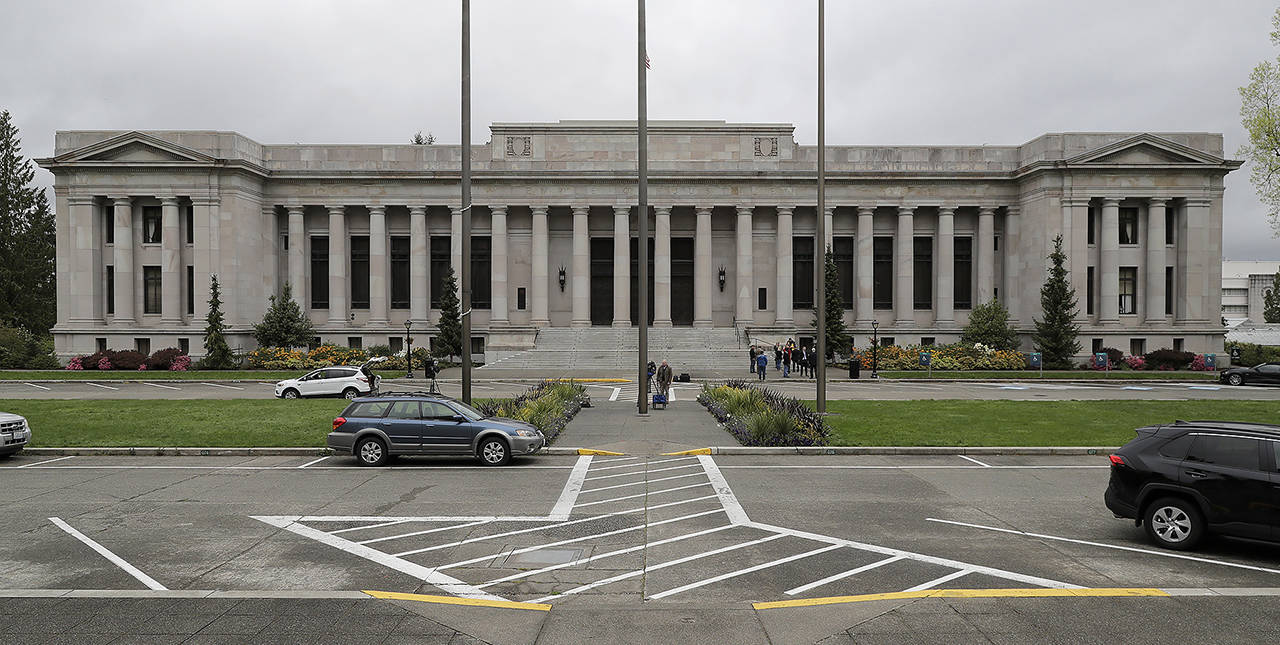By The Herald Editorial Board
Journalists of a certain age — those on the other side of 50 — might remember watching a 1973 documentary film in college journalism classes that chronicled a small publication, less than 5,300 subscribers at its start, run by Isidore F. Stone, a reporter, editor, author and for the final 17 years of his career from 1953 to 1971, publisher of his own newsletter, I.F. Stone’s Weekly.
The newsletter’s staff was small, just Stone and his wife, working from a small office and a cluttered desk, piled with documents, clippings and a manual typewriter. Stone was a constant critic of two entities: government, regardless of party — “All governments lie,” Stone said — and the conventional news media he believed was too cozy with government officials. Shunned by presidential administrations and some in journalism, Stone had only documents, transcripts and press clippings to work from, yet he published reports that broke news regarding federal budgets, civil rights, the military, the Korean War, the Vietnam War, the Cold War and McCarthyism, among other subjects.
Stone was an outsider, yet still a recognized journalist. Yet a decision last month by the Washington state Supreme Court might now deny someone like Stone access to public records that are available to other newspapers and news broadcasters, especially if that person’s publication is a blog or a YouTube channel and that person operates as a newsroom of one.
A May 27 ruling by the state high court, which reversed a Thurston County Superior Court determination, held that Brian Green, producer of the “Libertys (sic) Champion” YouTube channel could be denied public records — specifically the photos and birthdates of Pierce County jail officers and sheriff’s deputies involved in a 2014 scuffle with him — records that ordinarily would be made available to other news outlets, under a 2019 state Supreme Court case.
The court — interpreting a 2007 state law that is intended to shield newspapers, broadcast outlets and online publications from being compelled to testify or disclose sources — determined that the Legislature meant to define “news media” as “an entity that is in the regular business of news gathering and disseminating news or information to the public.”
Writing for the 7-2 majority, Justice Raquel Montoya-Lewis determined the court was bound by the Legislature’s intent in the 2007 law: “We conclude that the statutory definition of ‘news media’ requires an entity with a legal identity separate from the individual. Here, Brian Green has not proved that he or the Libertys Champion YouTube channel meets the statutory definition of ‘news media,’ and, thus, he is not entitled to the exempt records.”
In other words: Because Green’s “Libertys Champion” YouTube channel — which has about 700 more subscribers than Stone’s Weekly did at its start — doesn’t have a separate legal identity, he and his channel are not “news media.” Would the same then have applied to “I.F. Stone’s Weekly,” even with its correct use of the possessive apostrophe?
And why is a separate legal identity necessary to confer the right of access to public records? This Editorial Board has argued numerous times that the state’s Open Public Meetings Act and Public Records Act make clear the intent to ensure public meetings and records are made available to “the people.” News media frequently act as the people’s representative, but that relationship shouldn’t be used to exclude any member of the public from access to either government records or meetings.
Some have suggested an easy fix for Green and his quest for records access: delineate himself from his YouTube channel. The Seattle Times columnist Brier Dudley suggested Green could join with other DIY journalists or form a corporation to meet the court’s definition of “news media.” But what does such hoop-jumping accomplish? Filing as a limited liability company doesn’t confer on Green or others like him any additional level or responsibility or understanding of media ethics. His YouTube channel doesn’t become more legitimate with LLC at the end of Libertys Champion.
There’s legitimate concern that the distinction used by the court is necessary to protect the news media’s shield law. Allied Daily Newspapers, filing a friend-of-the-court brief in the case, wrote: “There is a danger of stretching the definition so far as to jeopardize the law’s continued existence. If the term ‘news media’ includes everyone posting commentary online or self-identifying as journalists, the potential impact on the justice system is significant.”
As long as we’re making slippery-slope arguments, however, there may be more here at risk for access to public records than to legal protections for the working press.
Admittedly, there are no easy answers or bright lines here. Many have and will continue to use “the people’s right to know” and a reporter’s hat with a “PRESS” card as cover for vendettas, personal and political. But tolerating those abuses provides the best protection against the loss of access to what belongs to the public.
The preamble to the state’s 1971 Open Public Meetings Act makes the case simply about with whom those rights of access reside:
“The people, in delegating authority, do not give their public servants the right to decide what is good for the people to know and what is not good for them to know.”
Nor have the people given courts or lawmakers the authority to determine who’s a journalist and who isn’t.
Talk to us
> Give us your news tips.
> Send us a letter to the editor.
> More Herald contact information.

























